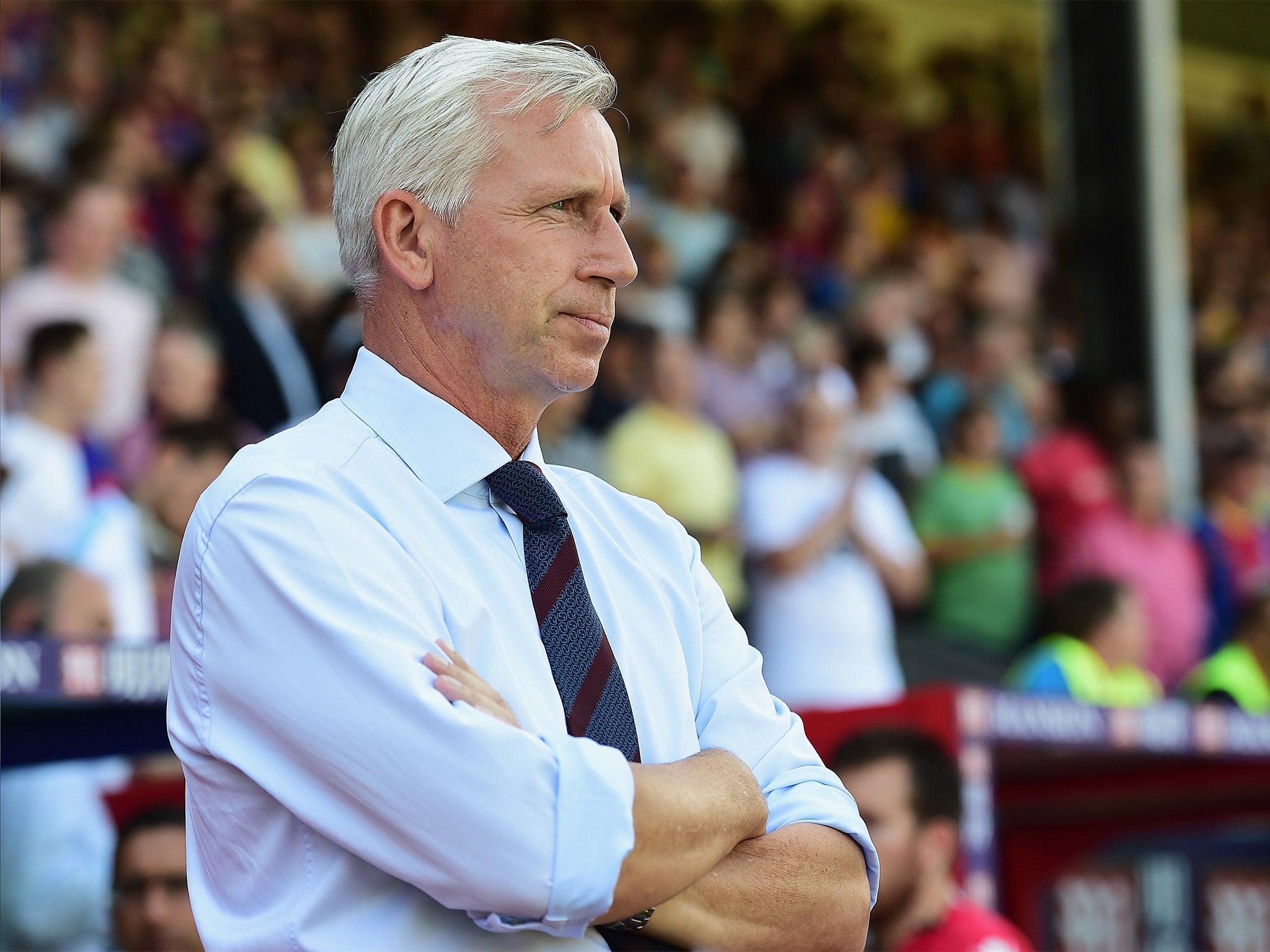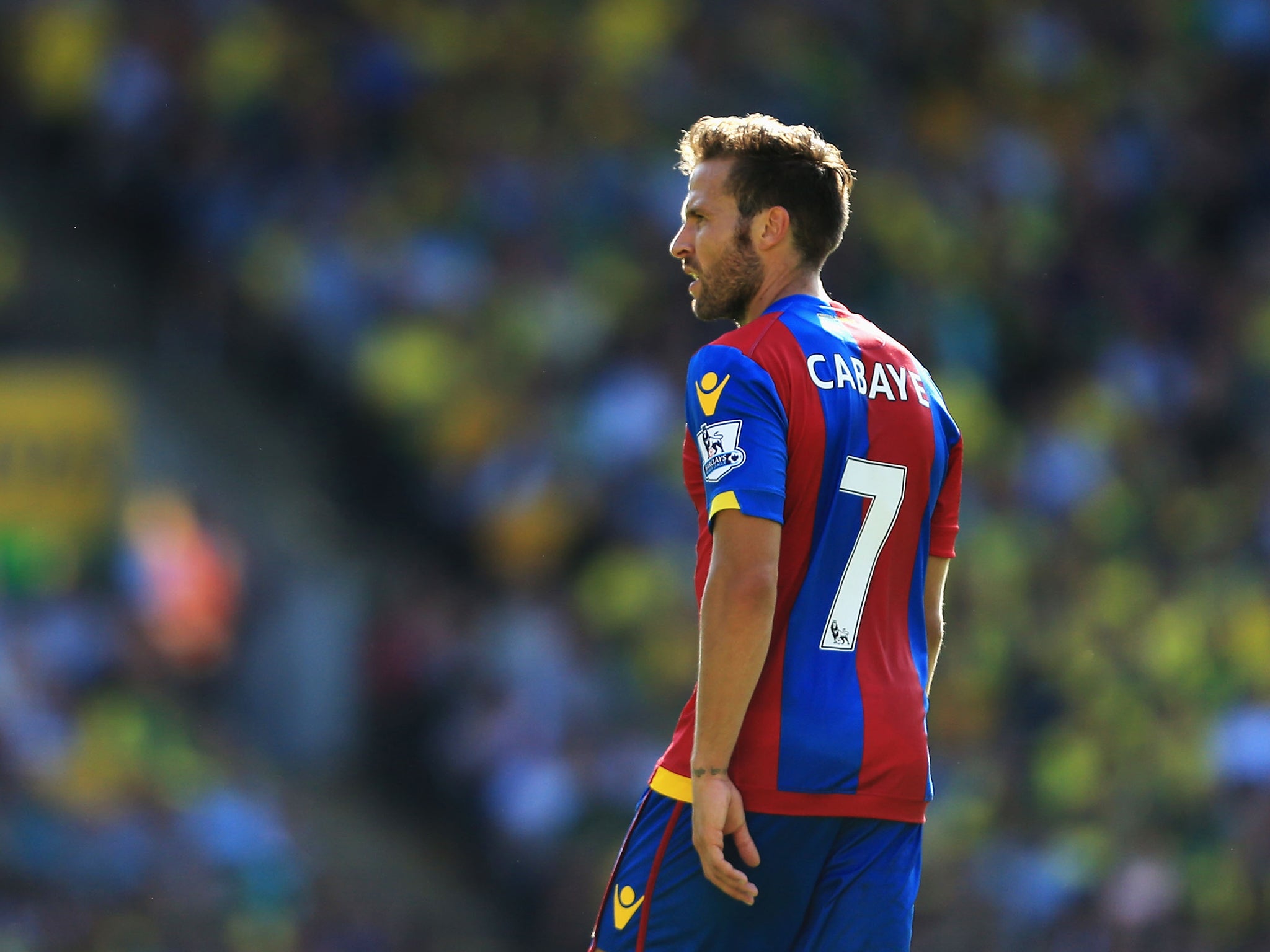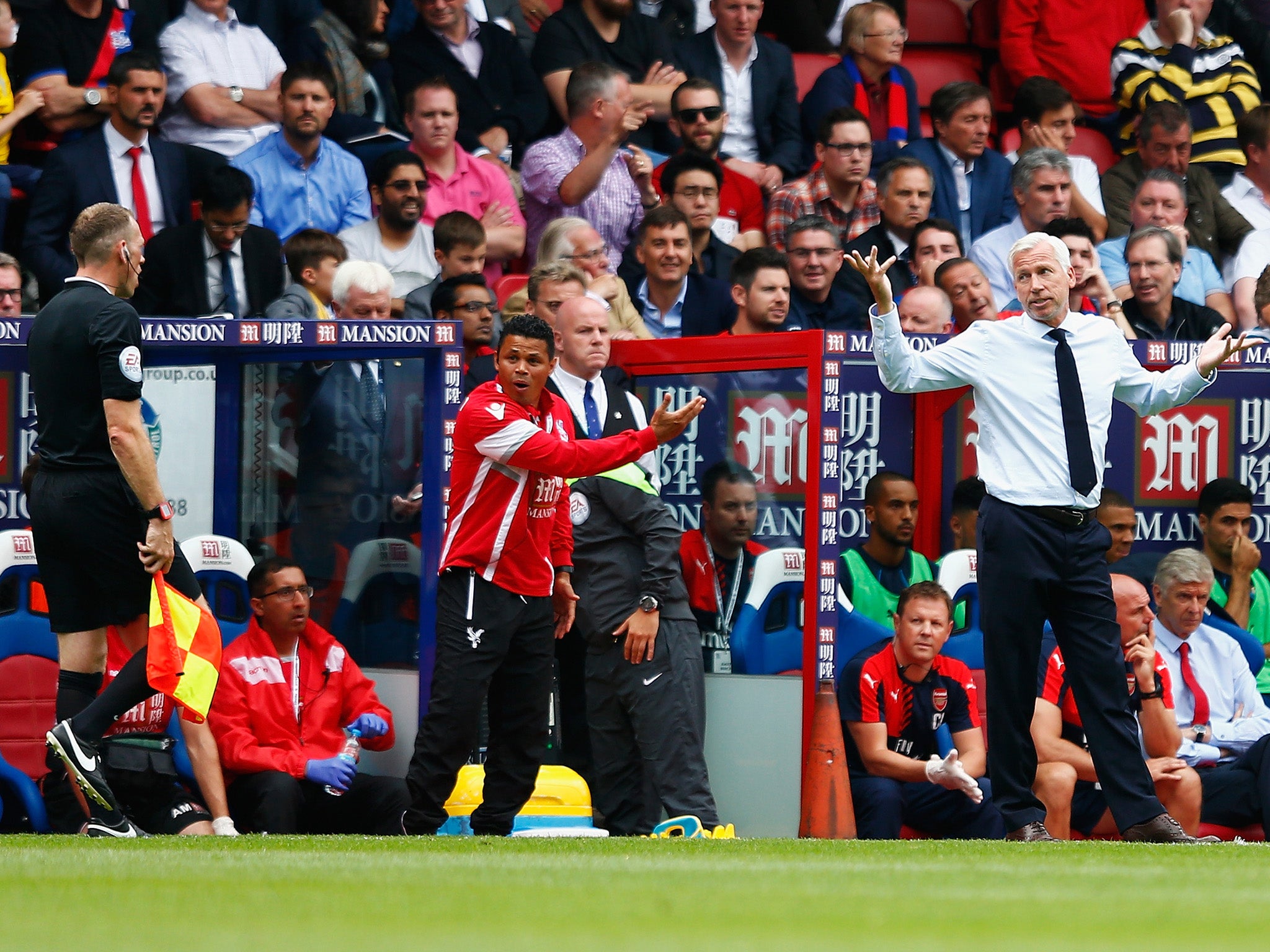Chelsea vs Crystal Palace: Alan Pardew seems to be building something special down at the Palace
As the high-flying Eagles take on Chelsea, all signs are that the club is well and truly heading in right direction

Your support helps us to tell the story
From reproductive rights to climate change to Big Tech, The Independent is on the ground when the story is developing. Whether it's investigating the financials of Elon Musk's pro-Trump PAC or producing our latest documentary, 'The A Word', which shines a light on the American women fighting for reproductive rights, we know how important it is to parse out the facts from the messaging.
At such a critical moment in US history, we need reporters on the ground. Your donation allows us to keep sending journalists to speak to both sides of the story.
The Independent is trusted by Americans across the entire political spectrum. And unlike many other quality news outlets, we choose not to lock Americans out of our reporting and analysis with paywalls. We believe quality journalism should be available to everyone, paid for by those who can afford it.
Your support makes all the difference.On Crystal Palace’s training pitch, between the mannequins, goals and cones, two men are knocking a ball about. There are smiles and laughter. Then they reluctantly leave the ball alone and return to their work: one climbs aboard a bulldozer, the other heads for a digger.
The builders are in at Copers Cope Road, and for once they are not engaged on a flat conversion or roof extension in a part of the suburbs where Kent meets south east London and a two-bedroom flat costs £400,000. The men in hard hats are upgrading Palace’s Beckenham base to one befitting a club with ambition.
In the pavilion overlooking the training pitches, Alan Pardew says: “We couldn’t have brought Yohan Cabaye to this training ground last year. It wouldn’t be fair on him, and I said that to the chairman. And so the chairman had not only to pay for the player, but he had to pay for a new training ground as well.”
Pardew’s personal connection with Cabaye, who played for him at Newcastle United, helped land the French international, but Cabaye would not have forsaken Paris St- Germain for Palace if he did not think the club had aspirations to match his own.
So far the £13m midfielder will be thinking he made the right choice. Palace go to Stamford Bridge on Saturday fifth in the table and feeling confident. I asked Pardew whether the match simply represented the chance to win three points, the means to measure his team’s progress, or the opportunity to make a statement of intent.
“The answer is yes to all three of them. I think my group – because we haven’t made too many changes from last year – tactically, we are not far away from where we finished [10th, Palace’s best since 1992] and the results prove that. We performed last year [at Chelsea] almost to our maximum and still got beat. Maybe we are a little bit ahead of Chelsea in terms of where we were in relationship to that game, so maybe we have got a better chance this time. I hope so.”

Cabaye’s arrival has not only enhanced Pardew’s team, adding guile to the pace and organisation already present, but it has also changed perceptions of a club that has long been talked about as a sleeping giant, but often in a mocking tone.
Rivals may deride the notion but in 1979 Terry Venables’ ‘Team of the 80s’ attracted more than 50,000 to Selhurst Park for a Second Division match, and in the early 1990s Palace hinted at their potential by reaching the 1990 FA Cup final and followed that by coming third in the top flight. Owner Ron Noades’ dream of a “south London superclub” to rival the north London giants seemed feasible. Yet Palace continued to be a yo-yo club, rising into the top flight for a year or two before dropping down again. Indeed, it is only five years since they were in administration and escaped relegation to League One by winning at Hillsborough on the last day of the season.
New owners, led by chairman Steve Parish, arrived and, despite a high turnover of managers, the club has flourished. This is Palace’s third successive season in the top tier, their longest run in the elite since being relegated in 1993 at the end of the first Premier League season. And now, as Stoke City and Swansea City have shown, if a club stays up, it can make quick strides.
“The stability of the club has been enhanced by that second term in the Premier League, and now a third term, which I don’t think we have ever done before,” says Pardew. “And, of course, it gives you the funds – the improvements have been huge.”

That applies on the pitch as well as off it. Two years ago, having been promoted, Palace smashed their transfer record, signing Dwight Gayle for £6m from Peterborough, and increased their total wage bill from £19m to £46m. But, according to the Global Sports Salaries Survey, they were still the lowest payers in the Premier League, with first-team squad members earning an average £998,632.
That wage bill has since multiplied exponentially as James McArthur, Cabaye and Connor Wickham have all exceeded the old transfer record. Suddenly, instead of looking down at the relegation zone, Palace are looking up – and abroad. The target is Europe, an adventure only once previously undertaken, in 1998, when they lost home and away to Turkey’s Samsunspor in the Intertoto Cup.
“We can’t win the league, I don’t think we can get in the Champions League, but I think we can really push for a Europa League spot this year,” Pardew adds. “And why not? We should have that ambition. That might change halfway through. It might be just making sure you survive. That agenda can change. But as we sit here now, that is our agenda.”
Pardew arrived at Palace in January. It was a homecoming for the 54-year-old south Londoner, especially after a difficult time at Newcastle United when he became a scapegoat for fans’ dissatisfaction with owner Mike Ashley.
Newcastle attract twice as many fans as Palace, have a stadium twice the size, and a much more glittering past, but the last in that list is increasingly distant and, odd though it may seem, Pardew looks to have traded up – in terms of his own ambitions, at least.
For a man with designs on being manager of England (and as the only experienced native manager in the Premier League, aside from Steve McClaren, he is a prime contender), Palace currently represent the better platform.
Pardew has made a point of not criticising Newcastle, and simply describes the clubs as “different”, but he adds of Palace: ‘What we are doing is going quickly. The team is evolving quickly. The only teams beyond us really are Spurs, Liverpool and the four above them. I think we can compete with Everton and everybody else and that’s what we are going to do.
“We have a huge catchment area. There are a couple of things important for us. First, the upscaling of the stadium, which I think is on the chairman’s agenda. Then we have a fantastic environment for a fan. You can’t help but enjoy the game. People who have come to my games, who are not Palace fans, are amazed at the atmosphere that is created. Away teams talk about it. My guys at Newcastle used to talk about it on the way home. It is one of those places at the moment which has just got that feel. Places get it from time to time.”
There is, indeed, a sense of a club – and a manager – on the move. Pardew played in Palace’s 1990 FA Cup final team, having fought his way into the professional game from non-League. The former glazier, at a club once known at the Glaziers, is a good fit. Both have known hard times, both have been sneered at for their ambition, but both are now prospering.
Saturday will be a test. Pardew, who gets on well with Jose Mourinho, is pleased John Terry is suspended. “He gives them that leadership,” says Pardew. “Whenever I see Chelsea I always think he is a lieutenant on the pitch for Jose. Whatever the game-plan, John will remember it and remind one or two. Players forget the game-plan quite easily. I think they will miss that, which is a bonus for us.”
Though a Fulham fan as a boy, Pardew used to watch Chelsea as a teenager. They were a sleeping giant back then, too. It has taken a Russian billionaire to revive Chelsea, but Palace, whose owners have flirted with a US consortium already, look increasingly like being a good prospect too, especially when the builders have finished.
Join our commenting forum
Join thought-provoking conversations, follow other Independent readers and see their replies
Comments